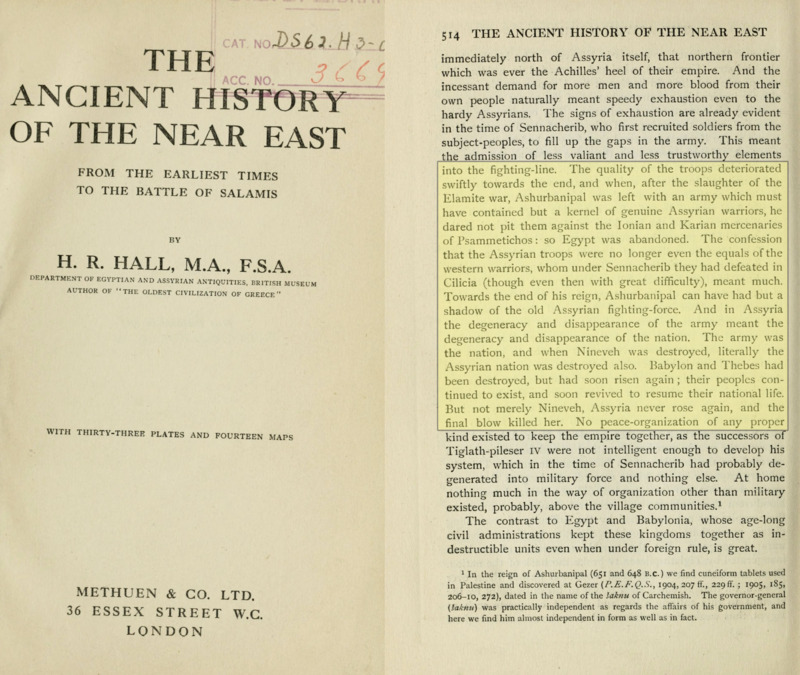-
Title
-
The Ancient History of the Near East: From the Earliest Times to the Battle of Salamis
-
Creator
-
H. R. Hall
-
Date
-
1924
-
Description
-
H. R. Hall explains Assyria’s collapse as a combination of military exhaustion and institutional fragility. Already under Sennacherib, he notes, the army had to be filled with subject peoples, which degraded its quality. By Ashurbanipal’s later years only a shadow of the old Assyrian fighting force remained. Hall speaks of the “degeneracy and disappearance of the army,” and because “the army was the nation,” the degeneracy and disappearance of the nation followed. When Nineveh fell, he writes, “literally the Assyrian nation was destroyed.” Unlike Babylon and Thebes, which were destroyed but revived their national life, Assyria “never rose again,” because no peace-organization or proper civil system existed to hold the realm together. The successors of Tiglath-pileser IV, in his view, lacked the intelligence to develop a lasting administrative structure; Assyria had become almost purely a military machine, whereas Egypt and Babylonia possessed age-long civil administrations that could outlive foreign rule.
-
Language
-
English
-
Publisher
-
H. R. Hall, The Ancient History of the Near East: From the Earliest Times to the Battle of Salamis (5th ed., London: Methuen, 1924; Routledge Revivals reprint), p. 514.
-
archive.org


